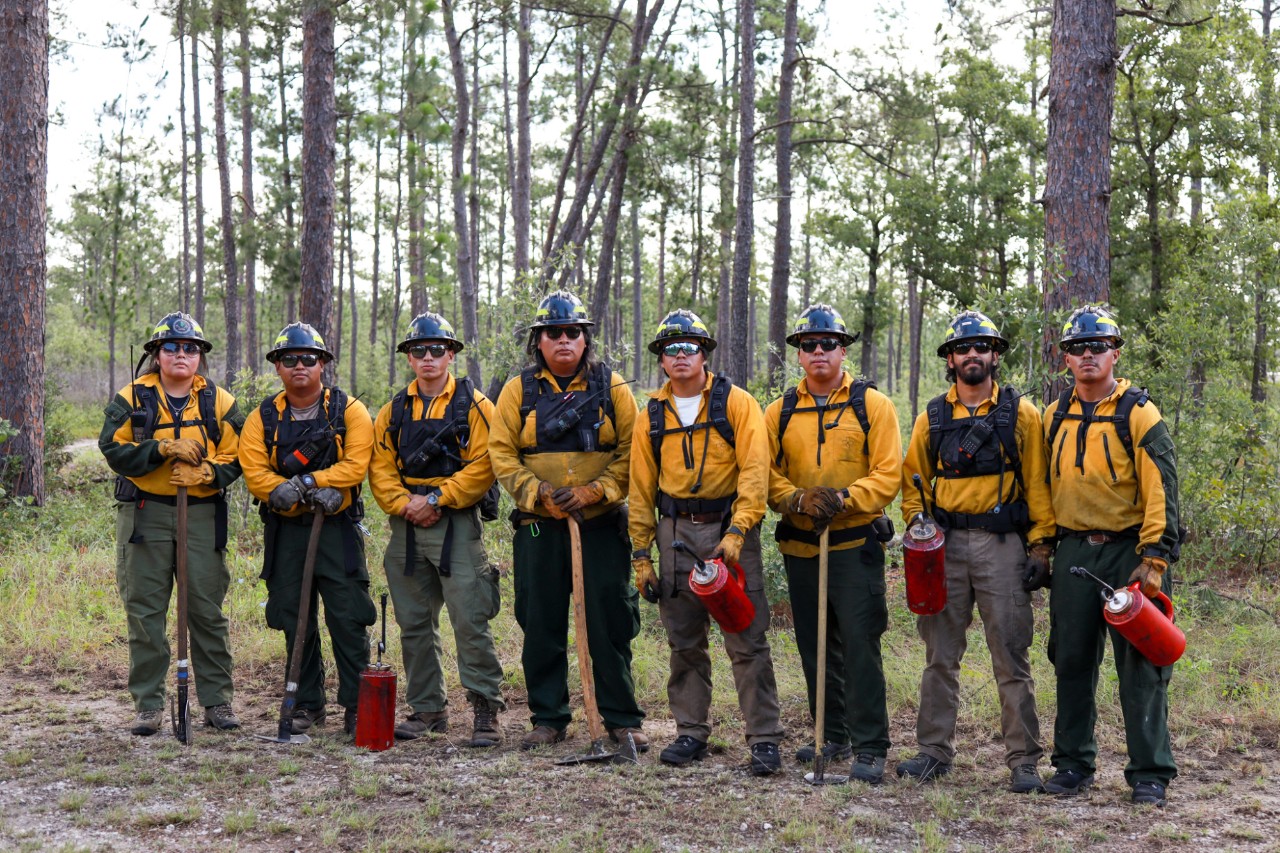
Charity Battise, an undergraduate studying GIS in the Department of Geography and Environmental Sustainability, spent her summer thinking about fire. Fighting fire, studying fire, and making plans for fire.
Battise worked as a Reserved Treaty Rights Lands (RTRL) coordinator. She is a member of the Alabama-Coushatta Tribe of Texas, and working as an RTRL coordinator gave her the opportunity to work with other members of her tribe in harnessing fire to aid longleaf pine trees.
Longleaf pine trees are significant to the Alabama-Coushatta, but they are becoming extinct due to overlogging. Because the trees are dependent on fire, Battise’s work is necessary for the culturally important trees. “Longleaf pine trees need fire to thrive, and people don’t plant longleaf much... They’re hard to take care of,” said Battise.
On a normal day as an RTRL coordinator, Battise was working to remove hazardous fuels like yaupon, shortleaf pine trees, or small oak trees. “We’re going to work, getting there early, leaving late, and just trying to make sure that we are available for wildfire suppression,” said Battise. “And if somebody else needs help around us, then we’re always willing to help.”
She also traveled to different reservations across the country to help fight fires there, and to California, where she helped another tribe with plans to restore their cultural fire, assisting them with burn plans and aiding in brainstorming.
Working as an RTRL coordinator led Battise to reexamine her choice of college major. When she began her college career—first at Arlington Baptist University and then at Angelina College—she was studying social work. “Why would I get a degree in social work when I love [working in the woods and mountains] so much. So I was searching for something that I could relate to the fire world.”
While at a Climate Change Conference in New Orleans in 2022, Battise met Assistant Dean of Student Services Aisha Owusu, who told her about the GIS major with the Department of Geography and Environmental Sustainability. Batisse had already done work in mapping acreages of fires, as well as plot monitoring on Reserved Treaty Rights Lands. A major in GIS seemed like the right fit.
Battise describes herself as an adrenaline junkie. The pace of working with fire appeals to her. “It’s like getting on a roller coaster and going down the biggest drop. It’s exciting and fast paced.” She says that critical thinking is also important in the field, and the ability to act in the moment.
While her path to the University of Oklahoma and her major in GIS was untraditional, she wouldn’t change a thing. “I know what I want to do and I’m very grateful for everything.” She’s looking into the possibility of combining aviation into her studies.
By Kathryn Gebauer
Article Published: Friday, September 29, 2023